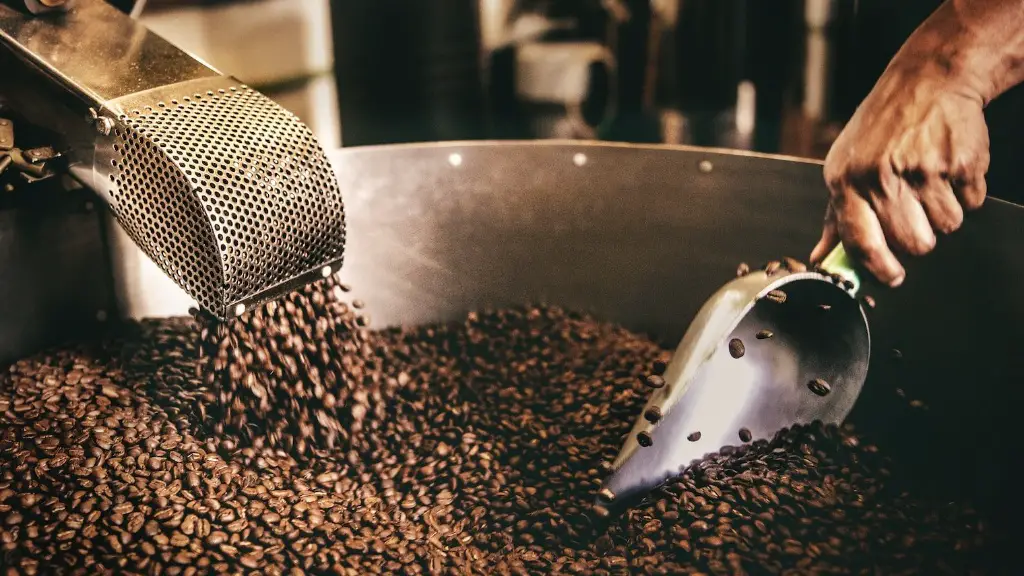Coffee has been an increasingly popular beverage for all ages, but is it bad for kids to start drinking coffee at a young age? The rise of `coffee culture’ has seen it become quite the status symbol in many countries, and a regular beverage for millions of people, ranging from the youngest to the oldest. It has been suggested that coffee has some health benefits, such as improved cognitive function, reduced risks of some diseases, and improved exercise performance.
Studies have shown that the amount of caffeine that can be safely consumed by a child varies and is specific to each individual. Consuming beverages with caffeine before the age of 12 is not recommended because of the negative impact it can have on a child’s sleep and concentration. Some experts believe that it is better to wait even longer, like until the age of 15 or 16, in order to ensure that the child’s body can handle the caffeine.
Most people agree that drinking coffee in moderation from a young age is not necessarily harmful to your health. Moderate consumption of coffee is generally regarded as having benefits for those that drink it, although these benefits can vary depending on the age, how regularly the coffee is consumed, and how much caffeine is in the drink being consumed. Generally speaking, any quantity of caffeine that surpasses 400 mg per day is considered too much for adults and presents certain health risks.
Coffee can also be consumed in other forms, such as espresso or cappuccino. These drinks often contain more caffeine than regular coffee and should be avoided by young children. Caffeine-free coffee is an option that should be considered instead, although caffeine-free coffee can still contain significant amounts of caffeine, which can affect sleeping patterns and concentration.
Drinking coffee while young can also have a psychological impact. Coffee is often seen as a sophisticated beverage, and as children mature, they may develop a desire to drink it. It can be argued that drinking coffee from a young age can lead to children drinking it too frequently, which may cause them to become overly dependent on it in order to function properly.
On the other hand, some experts believe that coffee consumption among young children should be encouraged. These experts argue that it can serve as an educational opportunity, as young drinkers can learn about the natural process of coffee production and the impact of caffeine on their bodies. Coffee has also been linked to improved alertness, focus and concentration in adults, which could have a similar beneficial effect on young children.
Effects On Brain Development
Recent studies have suggested that coffee consumption can have an impact on a child’s developing brain. Animal studies have indicated that caffeine can interfere with the development of the brain, impairing certain mental functions. It is not yet known to what degree this applies to humans, although researchers have cautioned that children and adolescents should avoid consuming large amounts of caffeine.
Coffee consumption can also interfere with the absorption of certain vitamins and minerals. This is particularly true for calcium, as coffee can limit its absorption. Calcium is an important nutrient for developing bones and teeth and so it is important for young people to get enough of this mineral via their diets.
In addition, caffeine is known to act as a diuretic – it increases the production of urine. This can lead to dehydration, which can be dangerous for young children. While the risk of dehydration is low from moderate consumption, it is best to be avoided if possible.
Overall, it is advisable for children and adolescents to avoid consuming large amounts of coffee and other caffeinated drinks. Moderation is key; children and adolescents should avoid consuming more than 400 mg of caffeine per day in order to avoid the potential health risks associated with excessive consumption.
Exercise Performance
Coffee can have a significant impact on exercise performance. For example, caffeine has been linked to improved stamina and endurance during exercise, as well as reduced muscle fatigue. Caffeine has also been associated with increased alertness and improved reaction times during physical activity.
Interestingly, research suggests that caffeine may be more effective for younger people, as their bodies and brains are more sensitive to the effects of caffeine. This means that younger people can experience greater performance gains from consuming caffeine before or during exercise.
Furthermore, caffeine can help to reduce overall fatigue and enhance people’s performance during endurance activities. This can be particularly beneficial for young people who are just beginning to participate in sport, as it can help them to develop better endurance and stamina.
However, this does not mean that young people should be encouraged to consume large amounts of caffeine prior to exercise. Like all stimulants, caffeine can have detrimental effects on the body if too much is consumed. Too much caffeine can lead to dehydration, nausea, and restlessness.
Overall, Moderate amounts of caffeine may be beneficial for young people who are starting to take part in sports, as it can help to improve their performance. However, if large amounts are consumed, then this can lead to negative health effects.
Caffeine Withdrawal
The primary concern when it comes to caffeine use in younger people is the risk of addiction. Caffeine is a psychoactive substance and can lead to physical dependence and withdrawal symptoms in some individuals. It is therefore important to be mindful of the amount of caffeine that is being consumed.
Most people will experience some kind of caffeine withdrawal when they stop consuming the substance. This can include fatigue, headaches, and irritability. Withdrawal symptoms can be more severe in younger people, as they are still developing and may not have the same tolerance to caffeine as adults do.
The key to avoiding caffeine addiction is moderation and discipline. Young people should be encouraged to monitor their caffeine intake and develop healthy habits. Establishing regular routines and only consuming caffeine on occasions can help to avoid any potential addiction.
Healthy Alternatives
Although caffeine has some potential health benefits, it is not the only option for young people looking for a refreshing drink. Water is always the best option for hydration and for general well-being. Additionally, milk and fruit juices are packed with essential vitamins and minerals and make excellent alternatives to coffee.
It is also worth mentioning that many coffee-flavoured drinks contain no caffeine at all. These drinks often have a milder flavour and less intense aroma, but they can still provide some of the same pleasure of drinking coffee, without the negative side-effects that come with caffeinated drinks.
Finally, young people can also explore herbal teas, which have a much milder flavour and are lower in caffeine. Some herbal teas contain no caffeine at all and can be a great alternative to coffee. Not to mention, choosing herbal tea also allows children to explore a variety of flavours and to experiment with different tea infusions.
Conclusion
In conclusion, it is safe to say that drinking coffee in moderation from a young age is not necessarily a bad thing. Children should be encouraged to make sure that their coffee consumption is kept in moderation, and to be mindful of the possible effects of caffeine on their bodies and brains.
Healthy alternatives, such as water, milk, and fruit juices, should be encouraged where possible. Lastly, it is important to note that caffeine should never be consumed in large amounts, and any sign of addiction should be addressed as soon as possible.





